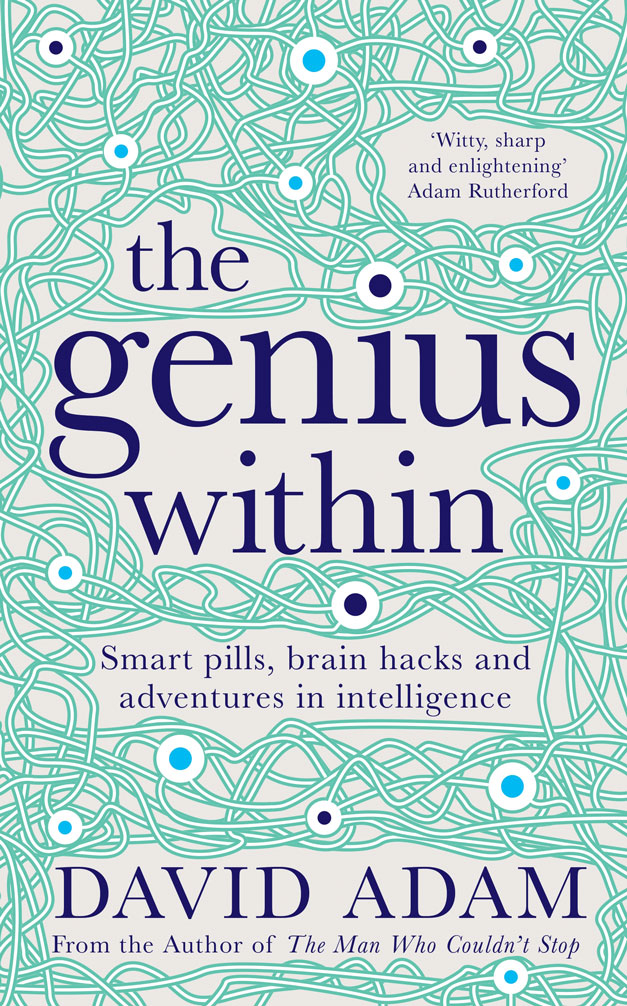By David Adam, Picador, 336 pages, £16.99
The old myth that you only use 10 per cent of your brain is obviously rubbish. If an iron spike went through the 90 per cent you never use, why would you care? But what might be true is that we only typically use a small part of our brain’s potential function. What if you could zap your head or take a pill, like Bradley Cooper in the film Limitless, and become insanely clever? Over the last decade, this sci-fi possibility has started to approach reality, and David Adam’s book is a timely prologue to the brave new world that might await us.
On the internet you can now buy gizmos to stimulate your brain with low doses of electricity. There is some evidence that this helps with depression and other disorders, but — as is usually the case with new therapies — it is already being used by healthy people just to get better at video games. (Zapping seems to make the affected brain areas more malleable, readier to form new connections, when the electrotherapy is combined with a course of cognitive behavioural therapy, or with deliberate practice of a physical skill.) Another big industry is that of “smart pills”, whereby medicines originally conceived to treat attention deficit hyperactivity disorder, say, are being sold on the grey market to students and others who want a pharmaceutical boost to their powers of concentration.
Adam himself tries both zapping his brain and taking the smart drug modafinil, without any great wow moments, although he thinks they probably worked a bit. The quest here is to sneak into Mensa by cheating with brain-hacking, although the unenhanced author already got in on his first try. (After doping himself he got better scores.) He is good on the weirdness of Mensa itself.
At a meeting, one woman says to him: “We don’t necessarily have anything in common just because we all have high IQs.” So what was the point again? My favourite of the rival clubs of intelligent people the author lists is the Grail Society, which is a reductio ad absurdum of the whole business. Run by a satirical Dutch guitarist, it has such high standards for entry — one in 76 billion people will qualify — that it has never accepted a single member.
Apart from the entertaining interludes explaining the author’s self-experimentation, most of the book is a history of what intelligence is actually supposed to be. It surveys the prehistory of neuro-enhancement with amphetamines or coffee, early experiments with electricity and magnetism, and the cult of phrenology. Adam goes back to Francis Galton, a cousin of Darwin, who coined the word “eugenics”; to Alfred Binet, inventor of the first intelligence test for children based on “mental age”; and to Charles Spearman, who hypothesised a single, measurable “general intelligence”.
As a writer of editorials for the science journal Nature, Adam is well placed to sort out comforting myths from the evidence base, as well as to fire off some excellent drive-by snark at other writers. (Malcolm Gladwell is here introduced as “the Canadian journalist who writes bestselling books about simple solutions to complicated problems”.) So, yes, intelligence is partly determined by genes; twin studies show the heritability is around 50 per cent. Yes, properly designed IQ tests do seem to be measuring a general capacity for intelligence. And perhaps the most unfair truth of all is what Spearman called the “general manifold”.
People with high IQs are not typically worse in other areas such as “emotional intelligence” (an idea Adam sardonically calls “a conceptual woolly blanket”) or even physical ability. Usually, they are just better at everything. According to one study, the best professional footballers also tend to be the most intelligent — a finding I welcome, having long been sure that David Beckham is no more stupid than, say, your average member of the cabinet.
Conversely, of course, heritability of “only” 50 per cent leaves a lot of room for intelligence-raising with education or brain-hacking. Indeed, the idea that intelligence is fixed at birth seems not only socially harmful but harmful to the individual who holds it: children encouraged according to an idea of “incremental intelligence”, whereby work and practice can improve scores, achieve better results. And Adam explains some intriguing research that suggests “savant” skills — such as extraordinary arithmetical or artistic ability — could in theory be “awakened” in anyone by dialling down a part of the brain that usually suppresses them, the better to engage in the kind of abstract thought that modern society demands.
Such suggestions raise deep questions about the future that are outside the remit of this fascinating and smoothly written book. What price culture if you can become talented by swallowing a pill?
And if cognitive enhancers go mainstream, we’ll need to deal with the question of whether increasing everyone’s mental powers would really be a good thing. Supercharged practical intelligence combined with malign motives, for example, would not exactly make for a better human being. If everyone has a genius within, it may well be that most people’s should stay there.
–Guardian News & Media Ltd










